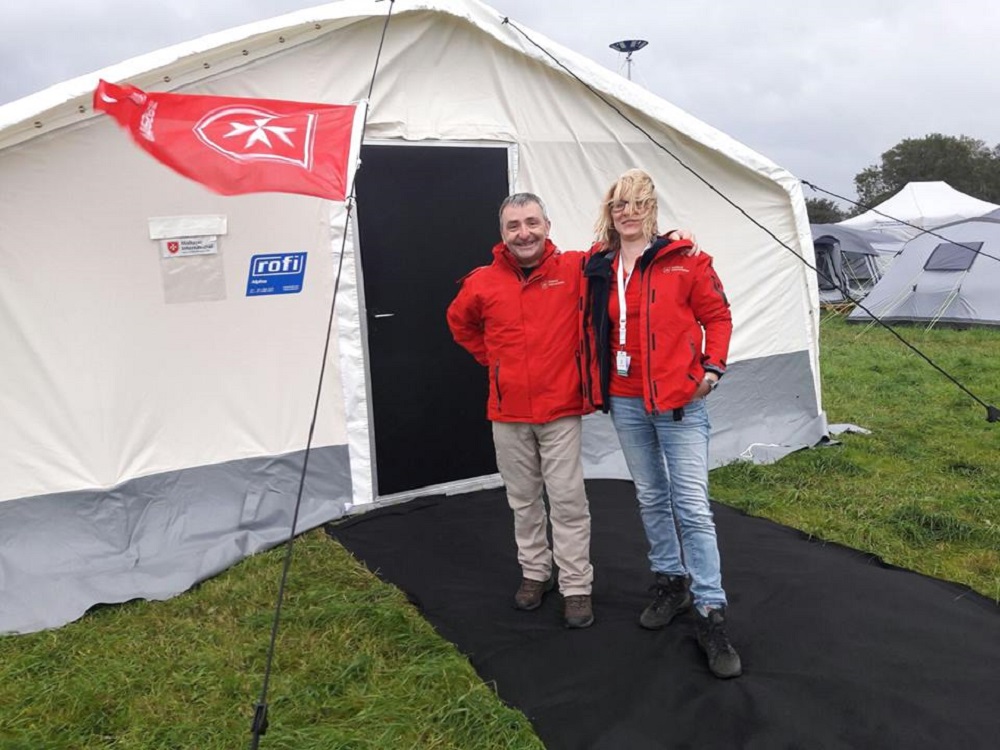Minden’s Jacques Larroude was on the fourth floor of an apartment building in Gaziantep, Turkey when a major earthquake struck on Feb. 6.
Working with CARE International, the wake up was “violent and unprecedented.
“It was terrifying, especially as it lasted between 60 and 80 seconds, but felt like an eternity,” Larroude told The Highlander.
He was “wobbly” as he got up and stood under his bedroom door frame to avoid ceiling debris, something he had been taught 13 years earlier when responding to the 2010 Haiti earthquake.
“It felt like the end of the world and I was expecting the building to collapse at any moment, but it held, and turns out, with little to no damage.”
Last September, Larroude was hired as a change management consultant by CARE Turkey to design and implement a transition plan for CARE’s area office in Syria. He was based in Gaziantep, with frequent trips to northwestern Syria.
His contract finished Feb. 4, and he was booked to fly out Feb. 5. But as fate would have it, a snowstorm cancelled his flight. He was rebooked for Feb. 7. He didn’t mind, as he planned to use the extra days for sightseeing and shopping for souvenirs. “And then, Feb. 6, 4:17 a.m. came,” he said.
Larroude is no stranger to disaster. He’s made a career as a humanitarian aid worker. More recently, in 2016 until the end of 2017, he was the emergency response coordinator (region of the Americas) for a German INGO, deployed regularly to the U.S.A., Haiti, Mexico, Colombia and Ecuador, responding to disasters there. From December 2017 until July 2022, he was managing CARE International’s humanitarian rapid response team.
Twenty-three years experience in hardship response
Although his contract with CARE ended Feb 4, he contacted his ex-manager on the day of the earthquake and offered to extend his services for a month. She accepted and put him in charge of the CARE response as Turkey earthquake response coordinator.
He’s been working 18 hour days ever since the quake that has claimed nearly 50,000 lives in Turkey and Syria, and caused large aftershocks Feb. 20.
While leading logistics, he noted about 90 per cent of staff were unable to work the first day as they were caring for their families and seeking safety.
Some of the things he has been doing include drawing up a scale up plan and calling for external assistance to the CARE regional office and headquarters; writing proposals and concept notes and submitting them to institutional donors for funding to be released for immediate response; using the emergency funds allocated; starting the local procurement process of relief items and services to distribute in response to the disaster according to needs; coordinating with the authorities and other agencies there (INGOs, U.N., Red Cross) to avoid confusion, overlaps and gaps; reporting daily through situation reports; “and much much more.”
Larroude said he is coping well as he was not located in the worst of the destruction.
“Also, I have 23 years of experience in hardship responses both for man-made and natural disasters,” he said. This has included the Democratic Republic of the Congo in 2000 and 2003, the Pakistan-Afghanistan border in 2001-2002, the Iraqi invasion in 2003, Myanmar in 2004, the North Sumatra tsunami in 2005, the Haiti earthquake in 2010, Mali in 2014, and the Ecuador earthquake in 2016, among others.
“My colleagues on the other hand have had a hard time because this is their home and where family and friends live, so they don’t have that luxury of emotional detachment that I benefit from, and am trained for like any first responder, so I avoid psychological damage.
“They are torn between their instinct to respond and their priorities to their families. Many have lost family members, friends, property or the ability to go back to their homes as they are either damaged or the utilities have been cut. Their children are badly shaken and scared to go back home, and so are the adults. The psychological trauma is very real and palpable.”
He is currently in Hatay on an assessment mission.
If all goes according to plan, he will finish March 3 and fly to Amsterdam to meet up with his wife, Wil Andrea, for the rest of the month. “And recuperate. I’ll need it.” He will also visit his mom in France for a few days and then fly back to Canada April 1.





